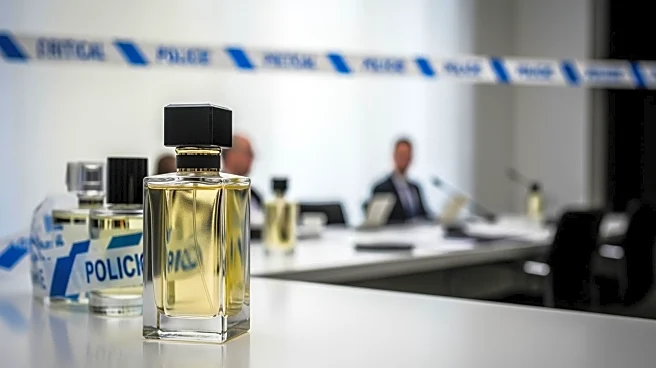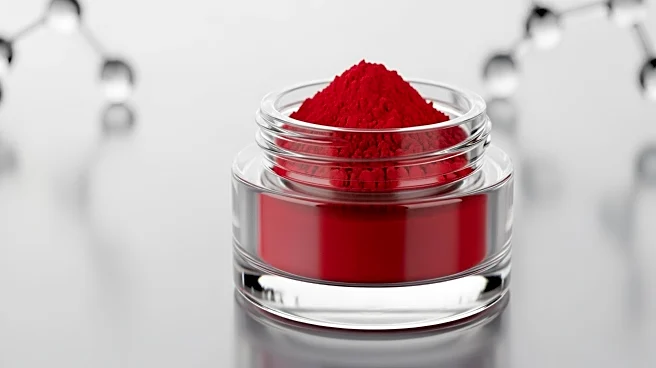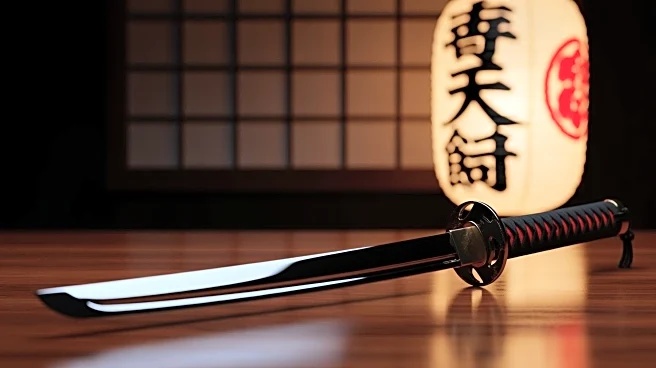What's Happening?
The Economic Police Division of the Ho Chi Minh City Police Department has dismantled a counterfeit perfume production and distribution ring. The operation, led by Nguyen Ngoc Tho and his wife Truong Thi
Mai Hien, involved the production of fake perfumes mimicking luxury brands such as Chanel, Gucci, Yves Saint Laurent, Versace, Burberry, and Dior. The couple, operating from a workshop in Tam Binh Ward, Ho Chi Minh City, used social media and express delivery services to distribute their products across Vietnam. Authorities seized nearly 20,000 bottles of counterfeit perfume and various production materials, estimating the total value of the goods at over VND 15 billion (approximately USD 615,000). Eleven individuals have been indicted as part of the investigation.
Why It's Important?
This crackdown highlights the ongoing issue of counterfeit goods in the luxury market, which poses significant challenges to brand integrity and consumer safety. The production and sale of fake luxury items not only undermine legitimate businesses but also deceive consumers, potentially exposing them to harmful products. The operation's scale, involving major global brands, underscores the need for stringent enforcement and consumer awareness to protect both brand reputation and public health. The case also reflects broader economic implications, as counterfeit goods can impact market dynamics and erode trust in legitimate commerce.
What's Next?
The Ho Chi Minh City police have emphasized a zero-tolerance policy towards counterfeit goods, particularly those affecting consumer health and brand reputation. The ongoing investigation may lead to further arrests and stricter regulatory measures to prevent similar operations. Authorities are likely to increase surveillance and enforcement efforts to deter counterfeit production, while brands may enhance their anti-counterfeiting strategies. Consumers are encouraged to remain vigilant and report suspicious products to help combat the proliferation of fake goods.
Beyond the Headlines
The case raises ethical and legal questions about intellectual property rights and the responsibilities of consumers and businesses in preventing counterfeit trade. It also highlights the cultural impact of luxury brand desirability, which drives demand for counterfeit products. Long-term, this incident could prompt a reevaluation of consumer education and brand protection strategies, fostering a more informed and cautious marketplace.










